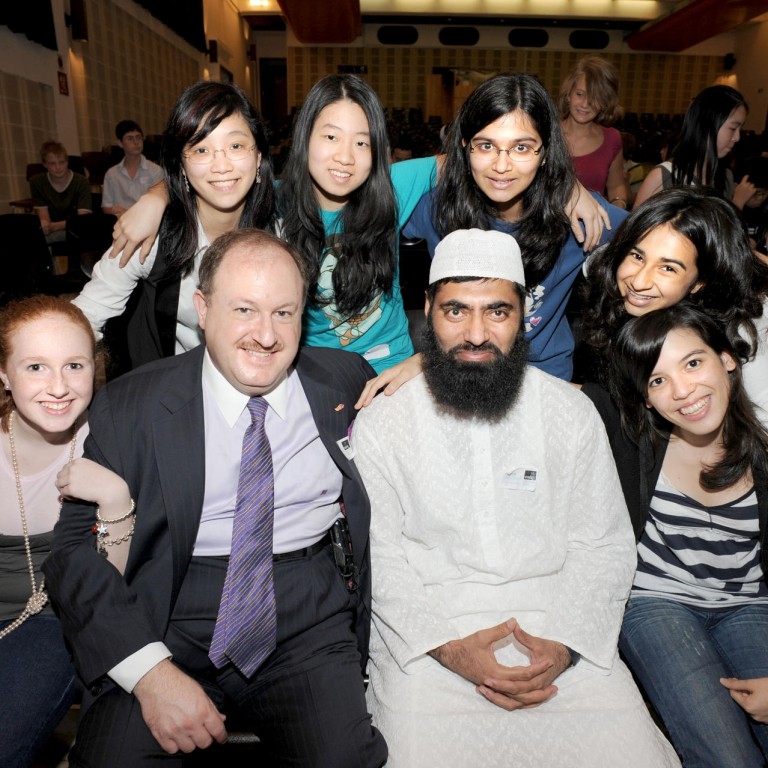
McDonald's, KFC and Pizza Hut say no to request to offer halal meat
McDonald's, KFC and Pizza Hut say no to imam's request to offer Islamic-certified meat, despite his claim it would be shrewd business
Hong Kong's three biggest fast-food chains have rejected a call by Hong Kong's chief imam to offer halal meat in their restaurants.
Mufti Muhammad Arshad contacted McDonald's, Kentucky Fried Chicken (KFC) and Pizza Hut to request that they use halal meat in some of their outlets. He said it would not only be good for Hong Kong's Muslims, but also a shrewd business move.
Halal is an Arabic word that means "permissible". Halal meat comes from an animal slaughtered according to Islamic law. That means Allah's (God's) name must be pronounced during slaughter, the instrument used must be very sharp to ensure humane slaughter (the animal must be slit at the throat), the animal must not be unconscious, and it must be hung upside down and allowed to bleed dry.
Eating blood is not halal. Pork is not halal, nor are certain cuts of meat, such as from an animal's hindquarters.
Arshad said he sent letters to the fast-food chains, but McDonald's, KFC and Pizza Hut all said that they had no plans to introduce halal meat in their outlets. But Arshad said it would be only a matter of time before they signed up, as McDonald's and KFC served halal food in other Asian markets, such as Singapore.
Halal certification of restaurants began in Singapore in the mid-1990s. Singaporean food blogger Daniel Ang says that the likes of Le Steak, a new halal steakhouse in the Jalan Kayu district, has been "packing the crowds in" at the weekends. In Hong Kong there are already halal outlets at Hong Kong Disneyland and Ocean Park.
"It's disappointing that we could not convince the companies," Arshad said. "It doesn't have to be Hong Kong-wide. In the main areas, like Central, Wan Chai, Tsim Sha Tsui, the New Territories and at the airport, it would be a great service. The companies have to realise there is a need for this and that it is good business for them."
Tourism sector lawmaker Paul Tse Wai-chun said he would welcome anything that would increase the diversity of Hong Kong and cater for people from different religious backgrounds. He said it would also be good for local businesses.
"The government has been trying to promote Islamic investment here, so the move would be beneficial to tourism in Hong Kong and our financial market," Tse said. "It's also a chance to attract tourists from Muslim countries to Hong Kong. We're showing that we are catering for them."
There are about 250,000 Muslims in Hong Kong, more than half of whom are Chinese. The rest are either locally born non-Chinese or are from Pakistan, India, Malaysia, Indonesia and Middle Eastern and African countries. In recent years, the biggest segment of Muslims in the territory have been Indonesians. Mostly female domestic workers, they account for almost half of Hong Kong's Muslim population - 120,000 people.
Arshad said that more than 50 restaurants served halal meat in Hong Kong. The meat is checked as being halal-certified in the country from which it is imported by Arshad and his staff.
"We double-check that a certified Muslim organisation has imported the meat and that the animal has been slaughtered according to Islamic rites," he said. "If we are satisfied that everything is in order, then we will issue a local halal certificate to let restaurants know that everything is fine."

